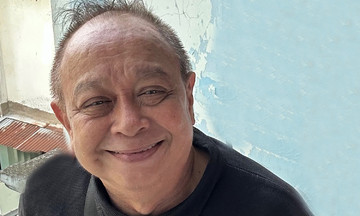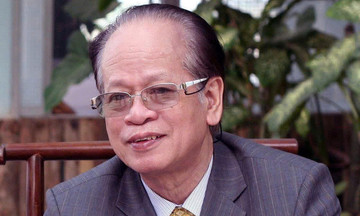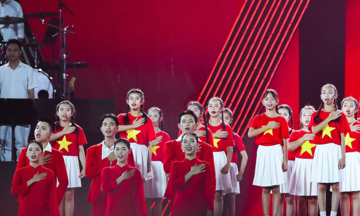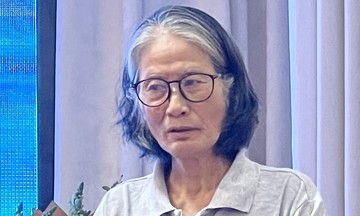By 1/9, after 10 days in theaters, the film had earned 364 billion dong, surpassing Bo tu bao thu (332 billion dong) and entering the top 5 highest-grossing films of all time. From a war film genre often labeled "difficult to watch", director Dang Thai Huyen's work brings a breath of fresh air to historical films, reflecting the appeal of the subject and the changing tastes of the audience.
On average, the film has over 4,700 screenings nationwide daily with an occupancy rate of over 44%, dominating many foreign films. On social media, the keyword "Mua do" has consistently been in the top searches, leading to thousands of emotional posts and comments.
The film's great success is primarily due to its high-quality content and visuals that evoke strong emotions. The screenwriter, writer Chu Lai, fought in the southern battlefield. Therefore, his writing is authentic, vivid, and imbued with the spirit of soldiers. The writer chose to focus on people, specifically a small squad, with soldiers from three regions. They have different backgrounds, circumstances, and personalities, but share the same ideals. Cuong, Ta, Binh, Tu, Sen, and Tan in Mua do represent millions of patriotic young people during the American War.
Director Bui Trung Hai commented that the film has many moving scenes, such as the scene where the character Ta sacrifices himself. The writer skillfully emphasizes and delves into the character's life and personal aspirations before his final moments, making it unforgettable for the audience. "No film is absolutely perfect, but the dedication of the Mua do team is commendable," the director said.
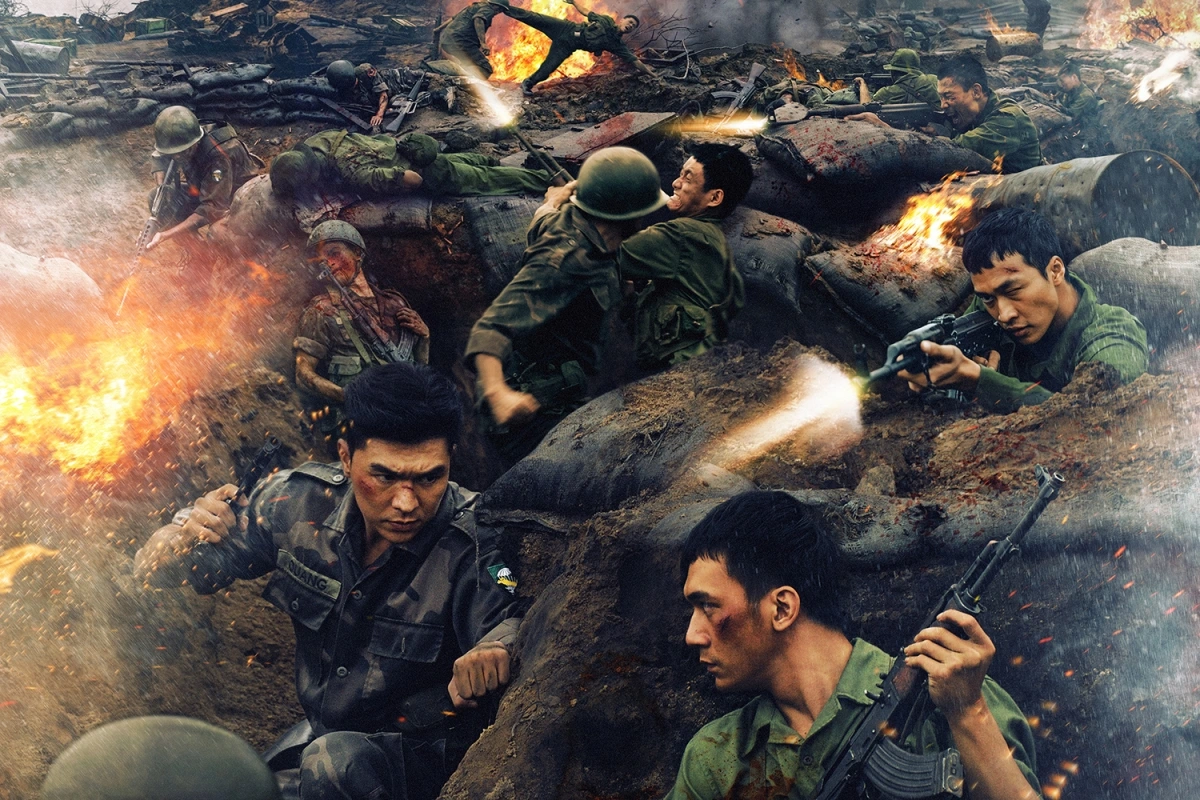 |
A scene from the film "Mua do". Photo: Provided by the film crew |
The film was meticulously invested in from pre-production, with grand settings and many large-scale battle scenes. The producer did not disclose the investment amount, but many estimate the film's budget to be in the hundreds of billions of dong. The team built a 50-hectare film set on the banks of the Thach Han River. During filming, the crew used a system of modern machinery and lighting. For many scenes, the cinematographer used up to seven cameras.
The crew also meticulously recreated details such as the Ta Con Airport, "Highway of Horror", and built a new set for the surgical bunker. The military equipment was also designed based on historical documents.
The cast does not have any "box office stars," but most fit their roles well. The actors playing the soldiers of Squad 1, such as Do Nhat Hoang (as Cuong), Phuong Nam (as Ta), and Steven Nguyen (as Quang), received much praise for their acting. Ta's role impressed with its simplicity and authenticity, with a Thanh Hoa accent. Cuong has a handsome appearance and good martial arts skills. The role of Quang - a South Vietnamese soldier - also impressed the audience with his bright appearance and emotional acting.
Before filming, they spent time training and living in Cu Chi (TP HCM) like real soldiers. The film also offers humane perspectives on the soldiers on the other side of the battle lines, consistent with the spirit of national reconciliation in the new era.
Mua do premiered at a "golden time" when patriotism was high, and the entire nation was united in commemorating the 80th anniversary of the August Revolution and National Day, 2/9. Previously, the success of two war films, Dao, pho va piano (23 billion dong) and Dia dao (172 billion dong), also paved the way for this film.
Writer Chu Lai stated: "If the film had been released 10 years ago, it might not have created such a buzz. Released at this time, the film blends into the atmosphere of patriotism and the spirit of looking back to one's roots."
The producer, the People's Army Cinema, actively promoted the film, constantly releasing images and behind-the-scenes details. They partnered with Galaxy Studio, a major domestic distributor, to bring the film to theaters nationwide. This approach helped the film gain wider popularity. Mr. Vi Kien Thanh, former Director of the Cinema Department, once said that many state-produced films faded into oblivion due to limited distribution. Dao, pho va piano was initially only screened at the National Cinema Center.
By 29/8, the distributor recorded 2.5 million viewers. In many theaters, the audience was mainly students. They continuously shared their feelings about the film on social media platforms, further increasing interest in the film.
Mua do is currently predicted to surpass 500 billion dong, even challenging the record of 551 billion dong held by Mai to become the most successful Vietnamese film in history, opening up a future for the Vietnamese war film genre.
Mr. Dang Tran Cuong, Director of the Cinema Department, stated: "Vietnamese audiences, especially young people, are not indifferent to war films. As long as the work is of sufficient quality, they are willing to embrace it."
Ha Thu




